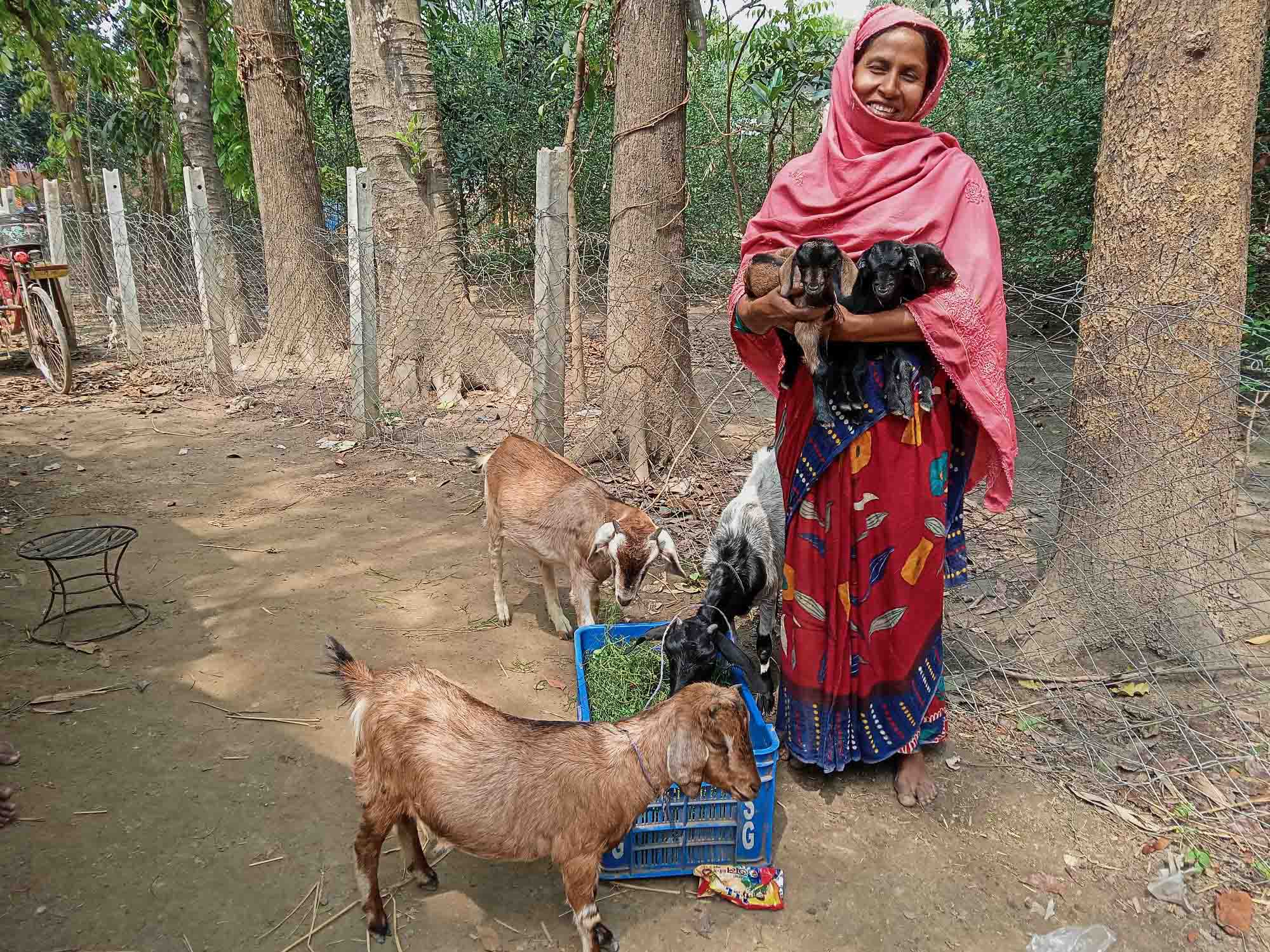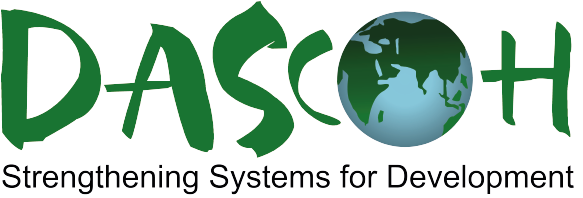
Title of the Project: Combating impacts of climate change in severely affected areas of Bangladesh (TECSAI).
Project Implementation Period: 4 Years and 3 months ( 01 September 2021 to 31 December 2024)
Name of donor: NETZ Partnership for Development and Justice
Project Areas: Nachole and Gomastapur Upazila in Chapai Nawabganj district
Direct Project Beneficiaries: 32,555 (persons)
Year wise budget distribution/allocations:
2020: BDT. 24,11,290
2021: BDT. 1,99,61,826
2022: BDT. 1,15,86,918
2023: BDT. 1,12,13,240
2024: BDT.91,02,386
Total Project budget: 5,42,93,660
District/ Upazila wise budget distribution:
Nachole Upazila: BDT.1,22,27,575
Gomostapur Upazila: BDT. 1,22,27,575
Project type and goal: The DASCOH Foundation, with backing from NETZ Bangladesh, spearheads "Combatting Climate Change Effects in Vulnerable Areas of Bangladesh" in Nachole and Gomastapur Upazila, Chapai Nawabganj District. Around 1,200 households and 4,379 residents, grappling with economic hardship and limited services, stand to gain financial stability. This project aims to reinforce community organizations, enhance human rights, and improve living standards. Focused on the Ganges-Brahmaputra Basin's climate-stricken Barind zones, it targets strengthening the resilience of 1,200 marginalized households and improving their livelihoods. The strategy involves training residents in income diversification, facilitating access to relevant government services, and engaging civil society in advocating for marginalized groups. Resulting efforts intend to equip 1,200 families with climate-resilient income approaches and enhance their ability to manage climate-related challenges. Moreover, it seeks to empower civil society through 59 local to national-level organizations and eight secondary schools, fostering their capability to engage in democratic dialogues with government bodies. This initiative aims to institutionalize an advocacy network focused on climate change impacts while documenting and sharing grassroots perspectives on climate justice with policymakers across various levels.
With the financial and technical support of NETZ Bangladesh, the DASCOH Foundation is executing "Combating the Effects of Climate Change in Severely Affected Areas in Bangladesh" specifically in Nachole and Gomastapur Upazila of Chapai Nawabganj District. An estimated 1200 beneficiary households with 4,379 inhabitants who are a part of a community that is struggling economically and in terms of access to services will benefit from financial stability and the strengthening of the people's organizations for establishing human rights and improving living conditions.
The overall Goal of the project- the economic and social resilience of 1,200 merginalised household with 4379 people affected by the consequences of climate change in the Ganges-Brahmaputra Basin specifically drought prone Barind areas increases significantly and their livelihood improves. Civil society in the region is strengthened to protect and promote the rights of marginalised groups affected by climate change.
Specific Objectives: By the end of 2023, 1200 trained people of Barind tract will significantly increase their income from climate-resilient and diversified sources of income and have access to climate-relevant government services. In dialogue with government authorities at local, national and transnational level, 1200 empowered civil society actors contribute their perspectives to the climate policy discourse via 59 civil society organisations and advocate for their demands.
Result 1: 1200 marginalised families increase their ability to profitably implement climate-resilient income-generation measures and to better cope with climate-related shocks, burdens and uncertainties.
Result 2: Civil society actors, organised in 59 CSOs from local to national level and in 8 secondary schools, are improving their capacity to hold government institutions from local to national level accountable in a conflict-sensitive democratic dialogue for the delivery of services relevant to tackling the impacts of climate change
Result 3: The partner organisations and grassroots CSOs improve their advocacy and networking skills from local to transnational level; an advocacy network on climate change impacts is institutionalised and operational
Result 4: The experiences and perspectives of affected communities at grassroots level on climate change and climate justice will be researched, documented and shared with relevant policy makers and the public at local, national and transnational level




